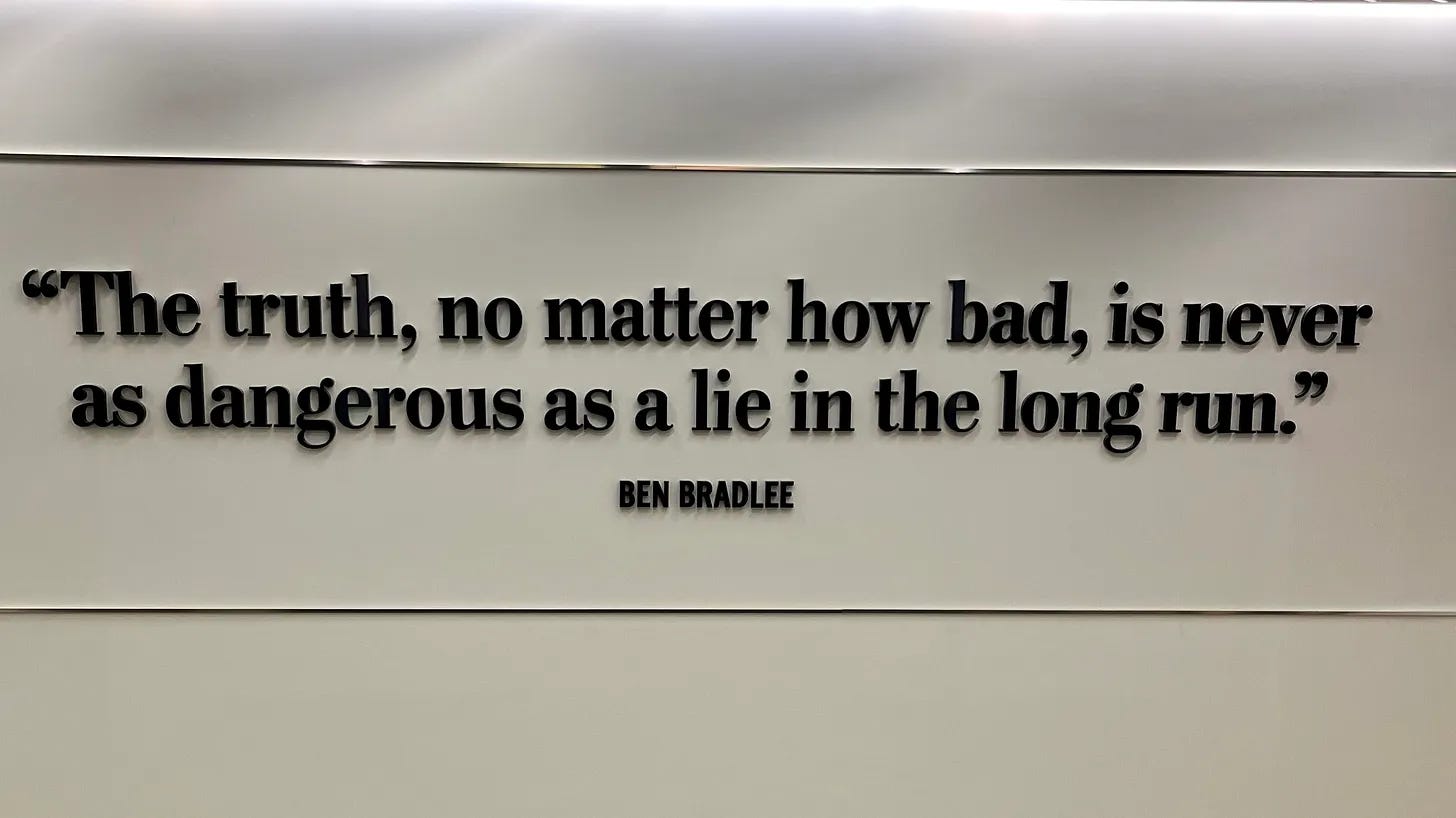I canceled my subscription to The Washington Post
Bezos does not afflict the comfortable, especially Trump
By Mike Sorrell
I learned to read before I ever walked into a school. My mother taught me by opening my world to children's stories.
Not long after that, I did my best to parse out the meaning of the words in Shirley Povich's column every spring and summer Sunday morning in The Washington Post. Povich was a sportswriter who covered the Washington Senators baseball team.
I read The Post most mornings through the ensuing decades with few interruptions. Back then, of course, I read print editions. When the digital newspaper became available some years ago, I shifted to reading The Post there.
On Tuesday, I canceled my subscription.
I almost cancelled last fall when owner Jeff Bezos began trying to please Donald Trump rather than readers. I've restrained myself while some 300,000 other Post readers pulled the plug.
The backlash against Bezos began when, just days before the 2024 presidential election, he announced The Post would not endorse a candidate.
The staff had already prepared an editorial endorsement of Kamala Harris. Not endorsing a candidate is a publisher's prerogative, but it seemed clear to me and at least 300,000 others that Bezos feared angering Trump, a revenge-prone man who could hurt Amazon and other Bezos businesses.
The next time I almost quit came when Bezos or one of his loyal underlings refused to post a cartoon by Ann Telnaes. She quickly resigned and set up shop here on Substack. Her spiked cartoon depicted Bezos and other ultra-rich business owners bowing to Trump.
I next considered cancelling when Bezos, who had not micromanaged The Post until last fall, announced the editorial page will publish daily opinion pieces on only two "pillars" — free markets and personal liberties.
Opinions on other subjects are written about by other publications and don’t need to be part of The Post any longer, Bezos informed his staff.
Several of The Post's best reporters and columnist have departed the newspaper. The newspaper's general quality suffered as a consequence.
The main reason I've hesitated until now to cancel my subscription is that I have not wanted to abandon the reporters, editors, columnists and photographers who continue to do good work despite the turmoil around them.
And yet, The Washington Post is fading fast. When Bezos bought the paper, hopes were high among readers like me who figured he had enough money to produce a high-quality newspaper. Although the paper remains well above average, it is not as good as it was in the 1960s and 1970s or at any other point between then and now.
On Tuesday, there are headlines in other online newspapers saying that President Trump likes the changes Bezos has made in The Washington Post.
That's what pushed me over the edge. I canceled my subscription.

During the mid-20th century, The Post's best era in my opinion, there was an often-expressed slogan favored by good journalists: Newspapers should comfort the afflicted and afflict the comfortable.
Bezos has flipped that to comfort the comfortable and afflict the afflicted.
My subscription does not expire for a few more weeks, so I'll continue to read the paper. And then, for me, The Washington Post dies in darkness.
The act of canceling the newspaper caused me to think back and realize how much I depended on The Post as a young man trying to know and understand what was going on.
During the Civil Rights era in the 1960s, The Post helped me, a white guy, see what was unfolding in the South as white supremacy gradually was confronted and racial equality began its slow emergence.
Also, it was in The Post that I read news stories about the assassinations of President John Kennedy, presidential contender Bobby Kennedy and the Rev. Martin Luther King.
Objective Vietnam War coverage by the newspaper caused me early on to oppose the war. The editorial page was slow to go up against the White House and Pentagon. But Ward Just's daily reporting in Vietnam described what was happening with the American soldiers and Marines sent to fight a war the top people in the Pentagon knew was unwinnable but did not say that.
The Washington Post was my go-to source for much of the news I continued to read on through the years. No newspaper is ever perfect, but The Post has always been one of the best. I will miss it.
On the bright side today, the decision to cancel has caused me to think about the Sunday mornings a long time ago when The Washington Post was spread out across my parents' bed as they read the news.
I would be down on the floor reading the comics — Dennis the Menace, Mark Trail — and then I would pick up the sports page and read about the Washington Senators.



Great article. I really enjoy your content.